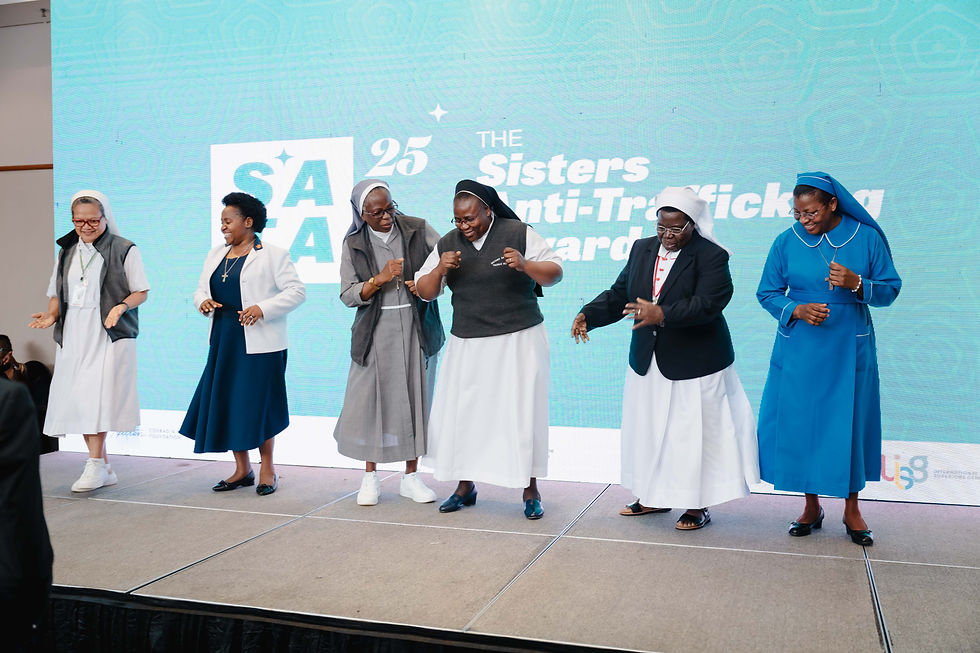Overseas Filipino Workers (OFWs) FACTSHEET
- Arise

- Feb 26, 2021
- 2 min read
The prevalence of slavery and human trafficking in the Philippines is inextricable from broader issues of poverty, inequality and the remittance economy. Traffickers lure people in with the promise of an opportunity (a "job" overseas or an "education" in the city) that many victims cannot afford to refuse.
Watch Marie's story on surviving human trafficking and domestic servitude in Syria, and read the facts on Overseas Filipino Workers in the Factsheet below.
Download the factsheet as a PDF and click on the underlined words to view their sources:

Learn about Online Child Sexual Exploitation (OSEC) in the Philippines here
Full text:
There are 2.2 million overseas filipino workers (OFWs)
OFWs constitute almost 2% of the entire Filipino population
97% of them are contracted workers, while 3% do not have contracts
DESTINATIONS
PROFILE
OCCUPATIONS
REMITTANCES
In 2019, total remittances came to $30 billion or 8% of the Philippines’ economy
OFWs are regarded as modern-day heroes (bagong bayani) due to their economic contribution
In 2018, the average remittance per female OFW was PhP 86m - 60% of that of male
RISKS & VULNERABILITIES
Vulnerable to trafficking through illegal recruitment practices: fraudulent contracts, hidden fees etc.
Shipping crewmen (25% of global merchant crews): Highly vulnerable ‘confined onboard, with no visibility to the outside world and with national laws having no jurisdiction over them and therefore offering no protection’
Construction workers: Highly susceptible to involuntary servitude, often subjected to ‘the withholding of passports and other personal documents, pay withholdings in the form of “forced savings” and overtime
Domestic workers: Inherently vulnerable hidden from view in unregulated working space
COVID-19
420,000 repatriated since beginning of pandemic, with 60,000 more expected in 2021
$840 million fall in remittances between March and June 2020 (compared to same period in 2019)
80,000 working in shipping industry were stranded on ships with expired contracts in June 2020
88,000 stranded in Saudi Arabia, with some forced to sell their blood and organs after losing jobs








I pray that the UK Government heeds the calls for the Commonwealth to prioritise human trafficking and support those working to end such slavery